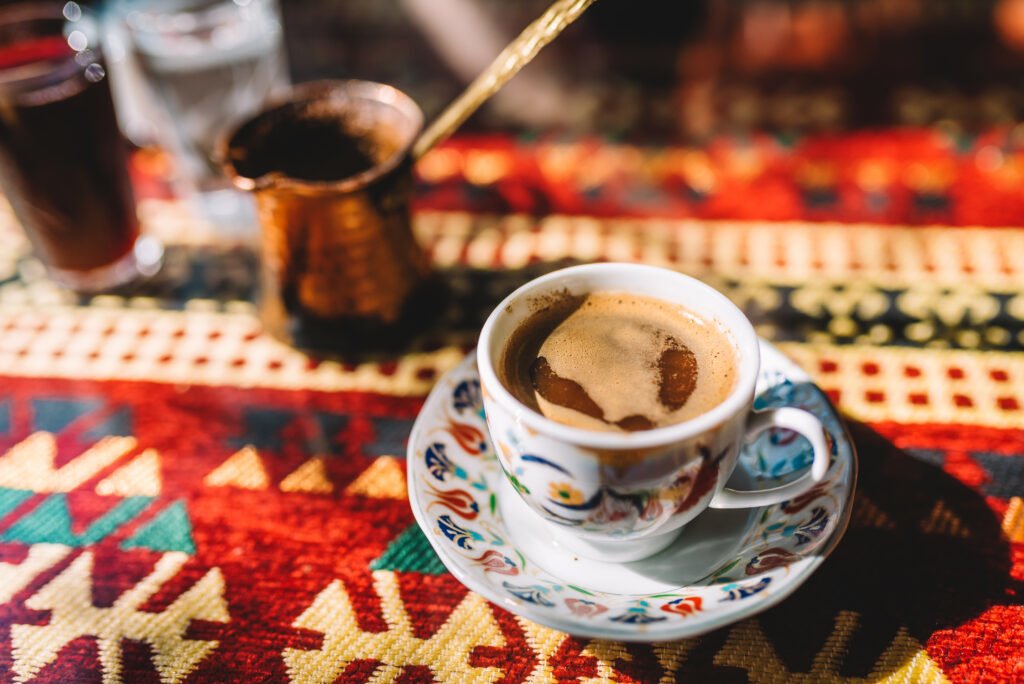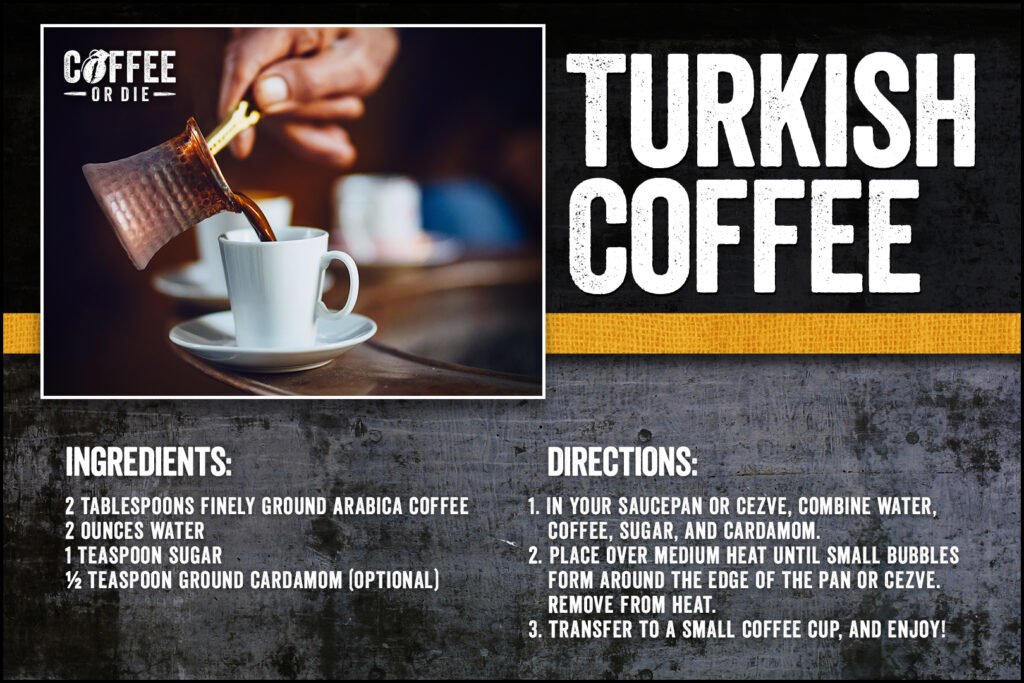
Cooking Turkish coffee high in the mountains at sunrise. Boiling cezve of hot coffee. Adobe Stock photo.
In Turkey, coffee transcends its station as a simple morning ritual. It’s everything from a token of earnest hospitality to a centuries-old marriage custom. And while we’ve all heard of Turkish coffee, the foamy beverage’s preparation and purpose remain somewhat mysterious to casual coffee drinkers.
Syrian traders initially brought coffee to Turkey in 1555. However, it was banned for much of this time due to religious constraints. By the mid-17th century, the sultan lifted the prohibition and coffee became an important element in Turkey’s elaborate cultural traditions.
It still remains a major part of Turkey’s everyday life and culture, with UNESCO inscribing Turkey’s symbolic treatment of coffee on their 2013 Intangible Cultural Heritage List.

The importance and pertinence of coffee manifests in several ways. Ottoman coffee houses are renowned for the intellectual and political conversations that take place in their establishments, similar to European and South American cafes. During marriage interviews, women are asked to make a coffee for their potential future husband and in-laws as a means of demonstrating their skills — though it’s also customary for women to secretly replace sugar with salt to gauge their husband-to-be’s temperament in a mutual test of their arrangement. Coffee is also often served with something sweet as a lavish post-dinner treat.
Turkish coffee is made by means of a cezve or ibrik. The latter is the Turkish word for a gooseneck pitcher, but much of the world has come to recognize it as a small pot with a long handle, which the general Turkish population refers to as a cezve. The multitude of flavors starts and ends in this coffee pot.
Traditionally, water and coffee grounds are mixed in a 2-to-1 ratio in the cezve. There aren’t any special beans required, but manually ground Arabica beans allow for the premium extraction of flavor.

Because the defining feature of Turkish is its thick layer of foam, additional ingredients should not be added after the coffee has been brewed. Any desired sugar or cardamom for flavoring is added to the mixture as it heats over the stove.
The process of heating Turkish coffee is usually described as cooking more than brewing because of the lack of a filter and decoction. The mixture is usually brought to a near-boil, then transferred immediately out of the cezve and into a small cup. Grounds remain inside the coffee as a sludge and often coat the bottom of the coffee cup. It’s customary to use these remains as a method of fortune telling, similar to reading tea leaves.
The reduction of beans and water often produces a rich, bitter coffee. As such, Turkish coffee is often served with water, which acts as a palate cleanser. Coffee is considered a luxurious treat in Turkey and is often accompanied by Turkish delights or other sweet treats when served unsweetened.
Turkish coffee heavily relies on the cezve, but a small sauce pam will achieve something similar, albeit less authentic.

BRCC and Bad Moon Print Press team up for an exclusive, limited-edition T-shirt design!
BRCC partners with Team Room Design for an exclusive T-shirt release!
Thirty Seconds Out has partnered with BRCC for an exclusive shirt design invoking the God of Winter.
Lucas O'Hara of Grizzly Forge has teamed up with BRCC for a badass, exclusive Shirt Club T-shirt design featuring his most popular knife and tiomahawk.
Coffee or Die sits down with one of the graphic designers behind Black Rifle Coffee's signature look and vibe.
Biden will award the Medal of Honor to a Vietnam War Army helicopter pilot who risked his life to save a reconnaissance team from almost certain death.
Ever wonder how much Jack Mandaville would f*ck sh*t up if he went back in time? The American Revolution didn't even see him coming.
A nearly 200-year-old West Point time capsule that at first appeared to yield little more than dust contains hidden treasure, the US Military Academy said.












